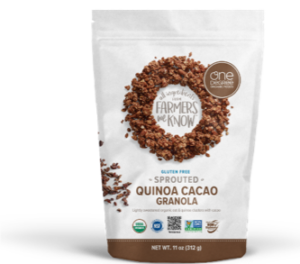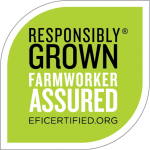Building loyalty among shoppers is key to a brand’s success, and product packaging and labeling can greatly impact consumer perceptions. Over the past few years, the consumer-driven clean label trend has pushed for increased transparency from the food industry.
Consumers want increased nutrition and health information and also wish to know the sustainable, charitable, and socially responsible aspects of a brand. According to Label Insight, “Transparency is more than just a list of required ingredients on a label. Consumers want to know everything, from sourcing information to how ingredients within the product were handled, and by who in order to determine what products fit their ethics, beliefs, and lifestyle.”
 Food companies have been responding to these trends by re-examining their ingredients, processing, origin statements, and how this information is communicated on their packaging.
Food companies have been responding to these trends by re-examining their ingredients, processing, origin statements, and how this information is communicated on their packaging.
One Degree Organic Foods, a bread and cereal producer, is a good example of how brands are responding to the transparency trend. The brand showcases the company’s values of “healthy soil, healthy crops, healthy people” on its packaging.
One Degree’s website features an ingredient tracker that allows consumers to scan a package code and see the source of each ingredient in the product. Included is a short video profiling the producer and photos of the farm. The website also introduces different One Degree farmers, inviting visitors to “meet the farmers” to learn about growing locations and farming practices.
 Another example is Happy Family Organics. The company’s Happy Baby Clearly Crafted™ jars highlight the product’s ingredients, nutritional values, and the actual recipe. Fruits and vegetables can be traced back to the farm. Happy Family’s website features key details of growers, including videos.
Another example is Happy Family Organics. The company’s Happy Baby Clearly Crafted™ jars highlight the product’s ingredients, nutritional values, and the actual recipe. Fruits and vegetables can be traced back to the farm. Happy Family’s website features key details of growers, including videos.
In these two examples, company packaging becomes a touchstone to reassure consumers that the products are healthy and to encourage customers to learn more online about company values.
When Label Insights asked consumers to indicate the importance of transparency for each food category, fresh fruits and vegetables ranked second highest, behind meat and followed by dairy.
Consumers (especially millennials) are hungry for more information about the products they purchase and want to buy products that meet their values and ethical standards. Marketers can take the opportunity to dig deeper, tell grower stories, showcase videos, and make more meaningful connections with consumers.
 Equitable Food Initiative (EF) is a great way for produce companies to offer assurance and transparency to consumers. EFI’s Responsibly Grown, Farmworker Assured™ label tells consumers that a grower has met more than 300 rigorous standards for labor practices, food safety, and pest management. In addition, EFI brings grower and worker stories to consumers through videos and social media.
Equitable Food Initiative (EF) is a great way for produce companies to offer assurance and transparency to consumers. EFI’s Responsibly Grown, Farmworker Assured™ label tells consumers that a grower has met more than 300 rigorous standards for labor practices, food safety, and pest management. In addition, EFI brings grower and worker stories to consumers through videos and social media.
Produce companies can verify the good work they are doing and connect with customers in a unique way by obtaining EFI certification. Learn more at www.equitablefood.org.

